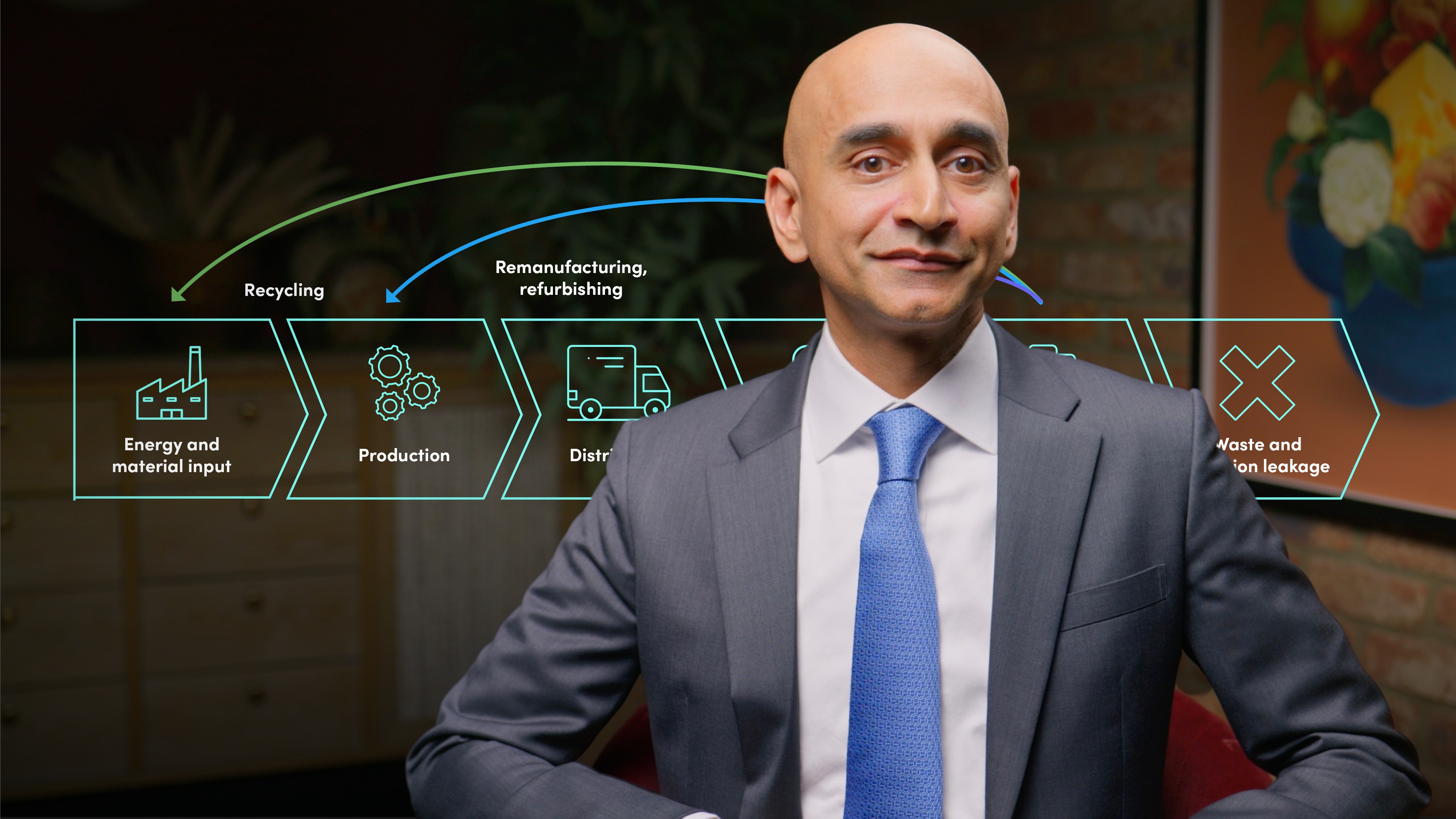
Assessing Environmental Investment Risks and Opportunities

Arun Kelshiker
20 years: Asset management and stewardship
In this video, Arun explores how environmental factors influence diverse investment opportunities. From assessing company practices with frameworks like the IFC's Equator Principles to using tools like carbon footprinting and climate scenario analysis, he examines the landscape of environmental considerations across investments. He forther discovers potential opportunities arising from the transition to a low-carbon economy, including the circular economy, 'greentech' innovations, and the growth of green and ESG-related financial products.
In this video, Arun explores how environmental factors influence diverse investment opportunities. From assessing company practices with frameworks like the IFC's Equator Principles to using tools like carbon footprinting and climate scenario analysis, he examines the landscape of environmental considerations across investments. He forther discovers potential opportunities arising from the transition to a low-carbon economy, including the circular economy, 'greentech' innovations, and the growth of green and ESG-related financial products.
Subscribe to watch
Access this and all of the content on our platform by signing up for a 7-day free trial.

Assessing Environmental Investment Risks and Opportunities
10 mins 15 secs
Key learning objectives:
Understand how to assess environmental factors across different investment types
Understand how to measure environmental risks
Outline potential opportunities relating to climate change and environmental issues
Overview:
Environmental factors impact different investment opportunities in different ways, for example, assessing company-specific environmental practices or utilising frameworks like the IFC's Equator Principles and the Helsinki Principles. Measuring environmental risks varies due to lack of universal standards, but techniques include carbon footprinting, the natural capital approach, and climate scenario analysis. Various opportunities related to climate change include the circular economy concept, 'greentech' innovations, a rise in green and ESG-related financial products, and the immense potential of the blue economy, which encompasses sustainable ocean-derived economic activities.
Subscribe to watch
Access this and all of the content on our platform by signing up for a 7-day free trial.
Subscribe to watch
Access this and all of the content on our platform by signing up for a 7-day free trial.

Arun Kelshiker
There are no available Videos from "Arun Kelshiker"





























